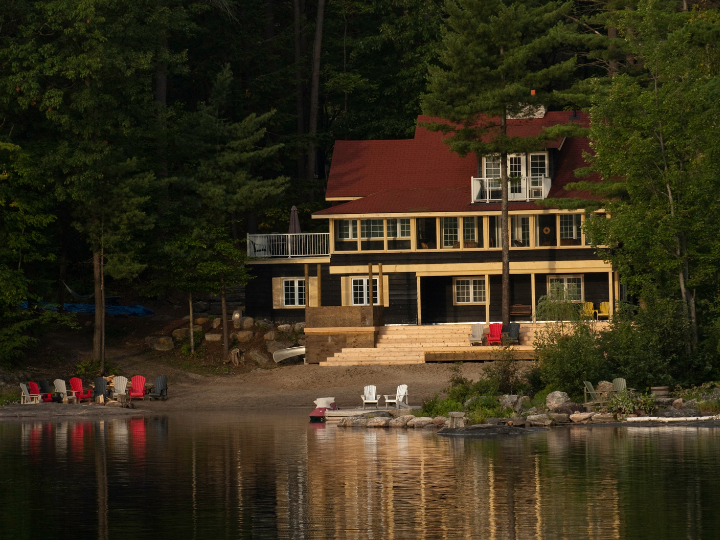What You Need To Know
June 10, 2021
The Golden Horseshoe is home to approximately 26% of Canada’s population. It is also one of the fastest growing regions in North America. Natural landscapes of waterfalls and escarpment ridges coexist with an urban lifestyle of convenience and comfort. The increase in population has been a major factor in driving up the costs of a home.
The influx of population and increased competition for homes means that the price of a home is not within reach for every new arrival to the Golden Horseshoe region. Some people are choosing to rent instead of purchase homes during this population boom. If you are looking to rent within the Golden Horseshoe, Duliban Insurance can help you choose the right insurance choices.
What are Renters or Tenant Insurance?
It may seem obvious to point out that a tenant does not own the property. This means that a tenant’s insurance policy will not need to cover the physical structure of the rented property. The landlord owns the house or apartment and leases the space to a tenant. The landlord, as a property owner, has a duty and responsibility to insure the property structure. Some of his coverage will benefit a tenant, but it will not completely cover everything within the rented property.
The things you buy to furnish an apartment or home are often not covered by a landlord’s policy. This means that if you have furniture and electronics that are your personal possessions within a rented property, and they get destroyed in a fire, the landlord’s policy may not pay for any of those damaged possessions.
Here are some things that tenant insurance may cover:
- Damage to or loss of your possessions
- Damage to or loss of your possessions not located within your home
- Damage that you accidentally cause to your rented property
- Injury to visitors due to an accident for which you may have been liable
- Damage to possessions of guests while in your home if accidentally damaged by you
- Loss of use living expenses in the event your apartment becomes unlivable
Your landlord’s policy may help with some of your expenses as a tenant in his or her property, but it is not always guaranteed. Consider that the landlord is creating a policy agreement between the themselves and the insurance company, and that agreement is not something you, as the tenant, have any control over. Therefore, it is important to have your own policy.
Renters Insurance Cost
Many people are renting due to their financial situation. Either they are saving for a down payment on a home, or they are simply not in a financial position to make such a large purchase, especially with the costs of homes in the Golden Horseshoe continuing to climb.
Sales of residential homes in Ontario were $30,489 in April 2021, which was more than double the number of sales the year before and surpassing sales records for the month of April. Home sale prices were 46.2% above the five-year average, and the average resale price in this area was $869,768.
The average income for Ontario residents is $53,691. Renters in this region of Canada spend 25% of their income on rent and utilities. The monthly rent and utilities are approximately $1,000.
For people who are not ready to make home purchases, renting is the right option. If you are trying to save up for a home in this region, expenses are an important element of your budget and the amount of money you can save or afford.
Renters insurance rates start as low as $15 per month and average around $20 per $25 per month. If you need a quote for a tenant policy, Duliban Insurance can help you find the right policy for your renting needs. This is a cost-effective value and will provide peace of mind that you will have coverage for possible costs of damaged property and injured guests. One can make the argument that not carrying renters or tenant insurance may be more expensive than the associated monthly cost of a tenant policy.
Risks of not Carrying Insurance
The small cost of carrying a tenant policy should not deter you from taking out a policy. It is also important that tenants not rely solely on their landlord’s property coverage. Your landlord will insure the property against accidents and natural disasters. Your landlord’s policy may not cover accidents caused by you within your home, and your landlord’s policy may not cover your personal possessions in the event of an accident. It is also important that you make sure that you find coverage for your own living expenses if you are temporarily unable to live in your apartment due to an accident.
Relying on your landlord’s policy is risky. This is because the insurance company may have to investigate whether the coverage on the landlord’s policy extends to you as the tenant. Some renters policies for landlords exclude some of this type of coverage. This could lead to a delay while you wait and even a denial of coverage, which would leave you with all the expenses to replace your possessions and rehome yourself.
Carrying a tenant’s policy provides you the peace of mind to know that you will have your own insurance company working to help you directly. This increases the speed of the insurance company and the likelihood that you will have the coverage you need to protect yourself and your belongings.
Learn More
To find out more about renting and the right coverage options for you, contact one of our experts at Duliban Insurance today. Call us at 855-835-4226, or email us at [email protected].
Article Resources:












